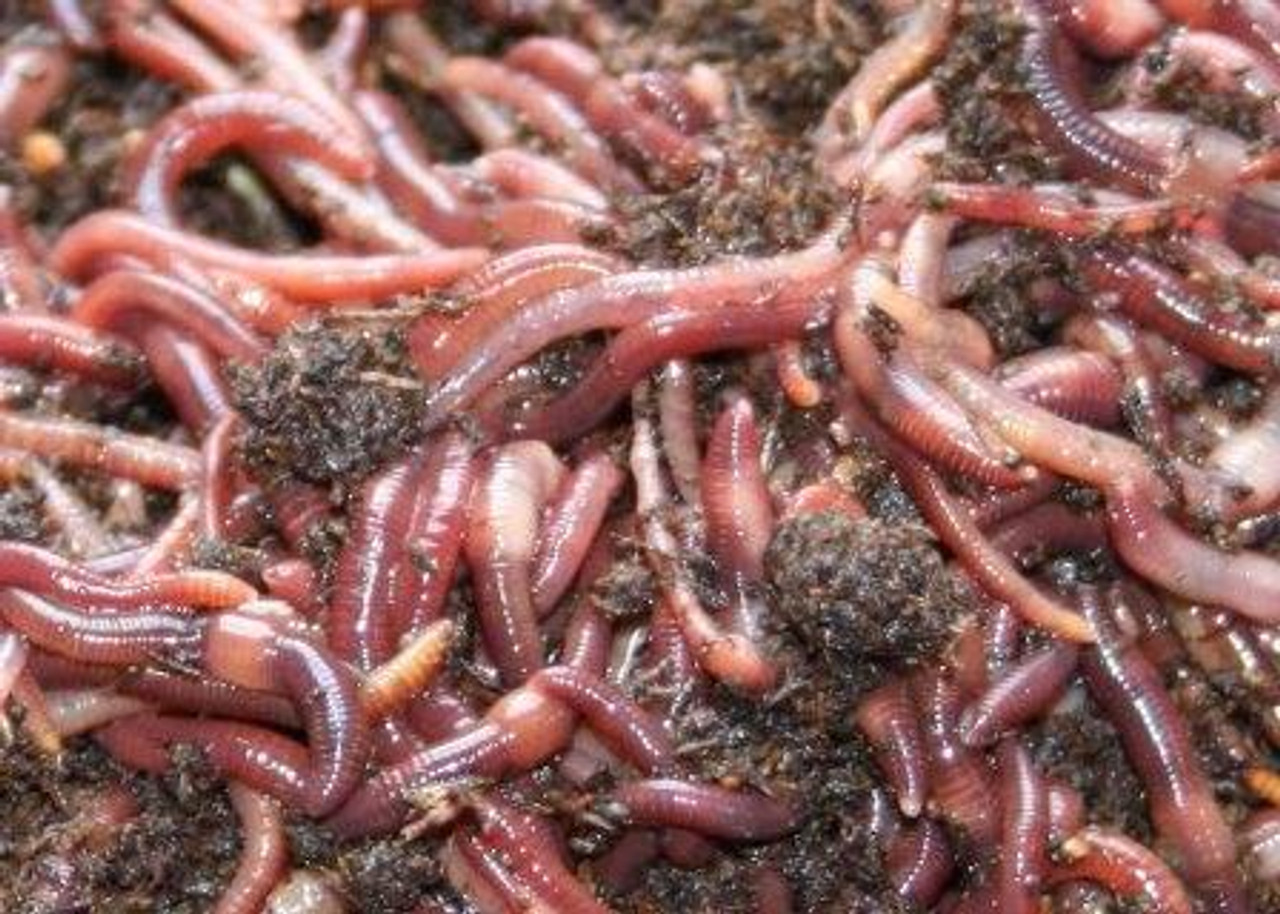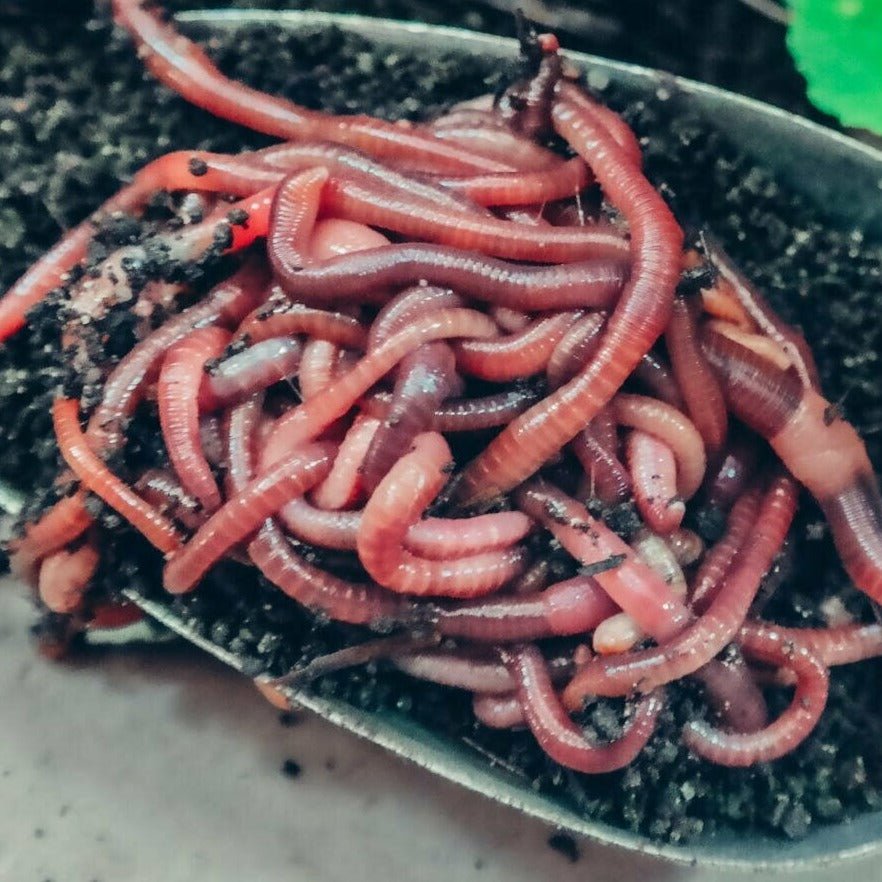Red Wiggler Express: The Best Source for Quality Worms and Bait
Red Wiggler Express: The Best Source for Quality Worms and Bait
Blog Article
Red Wigglers: The Unsung Heroes of Organic Waste Recycling
Red wigglers, or Eisenia fetida, function as critical agents in the organic waste recycling process, transforming disposed of materials into useful vermicompost. Their reliable failure of natural issue not just improves dirt high quality however likewise adds to sustainable waste management practices. As the globe progressively looks for options to battle waste buildup and enhance agricultural efficiency, understanding the role of these worms comes to be essential. What devices allow them to prosper in compost environments, and exactly how can they be successfully utilized in both property and industrial settings? Exploring these concerns reveals the broader ramifications of vermicomposting in our ecological landscape.
What Are Red Wigglers?
The impressive resilience of red wigglers, medically referred to as Eisenia fetida, underscores their vital function in natural waste recycling. These small, reddish-brown earthworms are commonly discovered in decomposing raw material, such as compost heap and manure loads. Lake Hickory Bait. Unlike other earthworm types, red wigglers thrive in nutrient-rich atmospheres and are highly effective at damaging down organic products, making them essential for vermicomposting

(Red Wiggler Express)Along with their function in waste decrease, red wigglers add to soil health and wellness by enhancing dirt structure and aeration through their tunneling tasks (Lake Hickory Bait). Their visibility in composting systems not just enhances decomposition rates however likewise advertises a lasting approach to lose monitoring, highlighting their importance in ecological preservation initiatives
Advantages of Composting With Worms
Composting with worms, specifically red wigglers, supplies numerous benefits that boost both waste monitoring and dirt health. Initially, these worms efficiently damage down natural waste, transforming it right into nutrient-rich vermicompost that improves dirt. This procedure speeds up disintegration, allowing for a quicker recycling of kitchen area scraps and other natural materials contrasted to standard composting approaches.
In addition, the vermicompost created by red wigglers is bursting with valuable microbes, which assist boost dirt structure, aeration, and dampness retention. This improves the general health of plants, advertising strenuous growth and raised returns in yards and agricultural settings. Furthermore, making use of worms in composting lessens the production of greenhouse gases, such as methane, adding to an extra you can try here sustainable waste management system.

Exactly How to Begin Vermicomposting
Establishing a vermicomposting system is an uncomplicated process that can produce substantial benefits for both waste administration and soil enrichment. To begin, choose an appropriate container, such as a plastic container or wood box, with appropriate ventilation openings to ensure appropriate air movement. The measurements ought to ideally be about 2 feet by 3 feet, enabling enough space for the worms to thrive.
Next, prepare bed linens material, which can include shredded paper, cardboard, or coconut coir. This bed linens should be dampened to develop a suitable environment for the worms. When the bedding is in area, introduce red wigglers (Eisenia fetida) right into the container, normally around one extra pound of worms for every square foot of area.
Complying with the placement of worms, include organic waste, such as fruit and veggie scraps, coffee grounds, and crushed eggshells. With these actions, you will successfully initiate a vermicomposting system that contributes to lasting waste administration and enhances your soil.
Keeping a Healthy And Balanced Worm Container
(Red Wiggler Express)Maintaining a worm container flourishing requires routine interest and treatment to ensure the wellness of the red wigglers and the performance of the composting procedure. Proper maintenance starts with keeping an eye on the dampness levels; the bin ought to perspire but not saturated. An excellent guideline is to keep an uniformity comparable to a wrung-out sponge.
Delicately blending the bedding and food scraps every few weeks avoids compaction and makes sure that all worms have access to oxygen. In addition, it is important to feed the worms appropriately.
If the container becomes also hot or cool, the worms may become stressed. By vigilantly managing these variables, one can maintain a robust and efficient worm container.
Effect On Sustainable Living
The effective upkeep of a worm container not only profits the health of red wigglers however likewise adds dramatically to lasting living techniques. By reusing organic waste, such as kitchen scraps and backyard debris, red wigglers help divert considerable amounts of material from landfills. This decrease in waste not just reduces greenhouse gas exhausts yet also lessens the ecological burden connected with waste monitoring.
In addition, the spreadings produced by red wigglers function as a nutrient-rich natural plant food, boosting soil health and advertising plant growth. This all-natural choice to chemical plant foods supports sustainable agriculture and gardening methods, lowering reliance on synthetic inputs that can hurt communities. Furthermore, worm composting promotes recognition of waste management, encouraging individuals and areas to embrace even more lasting practices.

Final Thought
In summary, red wigglers offer as vital factors to organic waste recycling with their efficient disintegration of organic materials. By incorporating vermicomposting right into waste monitoring strategies, people and neighborhoods can considerably minimize waste while promoting ecological sustainability.
Report this page